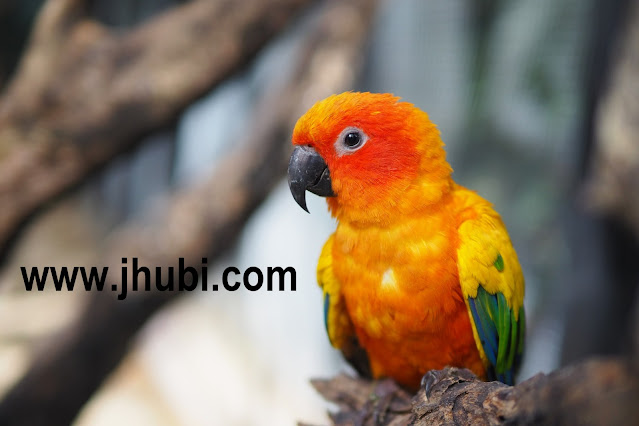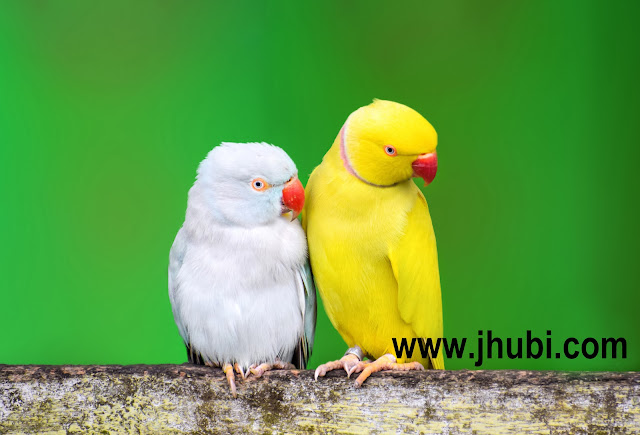It happens all too often: an unsuspecting person pays a visit to a local pet store. Once inside, they round a corner and find themselves face to face with a beautiful, vibrantly colored Macaw who greets them with a boisterous "Hello!" Immediately the person is smitten and minutes later they drive home with their new parrot.
Choosing the Right Bird: Avoid Unhappy Ownership
Many people who find themselves in this situation are unaware that macaws can live for nearly 100 years. Some have no idea that many birds have special dietary requirements or require daily handling and walking. Often such situations lead to unhappy owners and unhappy and unwanted birds. Make sure this doesn't happen to your family by checking out these tips on choosing the right bird for you.
1. Consider Size: Finding the Perfect Fit
In general, the larger the bird, the greater the involvement in keeping it. Large birds can make exceptional companions, but are often louder, messier, and more demanding than smaller species. For these reasons, it is generally recommended that novice bird owners start with a small to medium-sized bird. The size of your bird will be important in determining how you care for your pet as far as training, housing requirements, and overall interaction are concerned. Before buying a pet, it's important to think realistically about how much bird you can handle.
2. Behavior and Temperament: Finding the Right Companion
Do you want a bird that likes to get out of its cage and socialize, or would you prefer a pet that likes to be seen but not touched? The way your bird relates to you will be an important factor in the quality of the caretaker's experience and will also affect the bird's life. With this in mind, it is important to note that different bird species display different behavior patterns and dispositions. An African Gray behaves very differently than, say, a Canary. Those interested in a companion should be sure to research the species they are interested in so they can choose the bird whose personality is most compatible with their own.
3. Nutrition and Maintenance: Special Care Requirements
Some birds require specific diets or other special care. Lories, for example, are beautiful, medium-sized birds that are admired around the world for their striking colors. However, they have highly specialized digestive systems that require them to be fed a diet of pollen, nectar, and fruit. This, in turn, causes them to produce liquid feces, making it necessary to clean their cages more often than those of other species. While there are countless good reasons to buy a pet bird, these are the reasons why it's so important for potential owners to learn as much as they can about their favorite species before bringing one home.
4. Budget and Finance: Assessing the Costs
Keeping a bird can be expensive, and many of those costs can be related to the type of bird involved. Larger birds sometimes have an initial purchase price of thousands of dollars. These species typically require costly cages and accessories that add even more to the bill. Even smaller birds, while often less expensive initially, still present their owners with various financial obligations. Some birds can live a very long time, and those who care for them are responsible for feeding, housing, and providing them with veterinary care throughout their lives. All of these factors should be considered when choosing a bird so that you end up with a pet that you can afford to maintain.
5. Time Commitments: Dedicate Quality Time
Some bird species, especially the hookbills, need daily exercise, interaction, and time to get out of their cages. Are you able to spare at least two hours a day to socialize with your bird and supervise its activities outside the cage? If not, a Finch, Canary, or other more independent species may be best for you. To keep your pet healthy and happy, consider how much time you have available to spend with your bird when deciding which species to own. You should also consider the time involved in cleaning their living space, the floor, and their food and water bowls, as well as taking the time to make sure your bird is clean by giving them showers and getting out into the sunlight, which is crucial to their health.
For those who put a little effort into selecting a pet that is compatible with their lifestyle, bird ownership can be a hugely enriching experience. A little research and careful thought can go a long way in ensuring that your relationship with your pet is destined to be a good one. Resisting the urge to buy a bird on the run and keeping these important tips in mind will help you make the right decision about which species is best for your family. Your best guess? Be sure to adopt a bird so that you have the support of the adoption and education foundation you adopted to help you successfully learn how to interact with these wonderful companions.





0 Comments